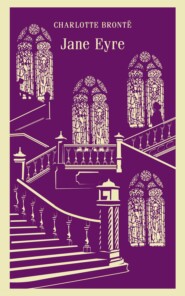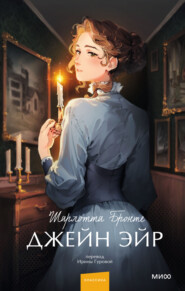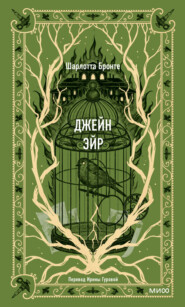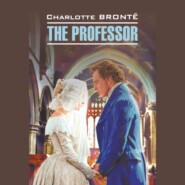По всем вопросам обращайтесь на: info@litportal.ru
(©) 2003-2024.
✖
Villette
Настройки чтения
Размер шрифта
Высота строк
Поля
"It is little past eight, but you shall go in soon. Answer me only this question."
Yet he paused ere he put it. The garden was truly growing dark; dusk had come on with clouds, and drops of rain began to patter through the trees. I hoped he would feel this, but, for the moment, he seemed too much absorbed to be sensible of the change.
"Mademoiselle, do you Protestants believe in the supernatural?"
"There is a difference of theory and belief on this point amongst Protestants as amongst other sects," I answered. "Why, Monsieur, do you ask such a question?"
"Why do you shrink and speak so faintly? Are you superstitious?"
"I am constitutionally nervous. I dislike the discussion of such subjects. I dislike it the more because – "
"You believe?"
"No: but it has happened to me to experience impressions – "
"Since you came here?"
"Yes; not many months ago."
"Here? – in this house?"
"Yes."
"Bon! I am glad of it. I knew it, somehow; before you told me. I was conscious of rapport between you and myself. You are patient, and I am choleric; you are quiet and pale, and I am tanned and fiery; you are a strict Protestant, and I am a sort of lay Jesuit: but we are alike – there is affinity between us. Do you see it, Mademoiselle, when you look in the glass? Do you observe that your forehead is shaped like mine – that your eyes are cut like mine? Do you hear that you have some of my tones of voice? Do you know that you have many of my looks? I perceive all this, and believe that you were born under my star. Yes, you were born under my star! Tremble! for where that is the case with mortals, the threads of their destinies are difficult to disentangle; knottings and catchings occur – sudden breaks leave damage in the web. But these 'impressions,' as you say, with English caution. I, too, have had my 'impressions.'"
"Monsieur, tell me them."
"I desire no better, and intend no less. You know the legend of this house and garden?"
"I know it. Yes. They say that hundreds of years ago a nun was buried here alive at the foot of this very tree, beneath the ground which now bears us."
"And that in former days a nun's ghost used to come and go here."
"Monsieur, what if it comes and goes here still?"
"Something comes and goes here: there is a shape frequenting this house by night, different to any forms that show themselves by day. I have indisputably seen a something, more than once; and to me its conventual weeds were a strange sight, saying more than they can do to any other living being. A nun!"
"Monsieur, I, too, have seen it."
"I anticipated that. Whether this nun be flesh and blood, or something that remains when blood is dried, and flesh is wasted, her business is as much with you as with me, probably. Well, I mean to make it out; it has baffled me so far, but I mean to follow up the mystery. I mean – "
Instead of telling what he meant, he raised his head suddenly; I made the same movement in the same instant; we both looked to one point – the high tree shadowing the great berceau, and resting some of its boughs on the roof of the first classe. There had been a strange and inexplicable sound from that quarter, as if the arms of that tree had swayed of their own motion, and its weight of foliage had rushed and crushed against the massive trunk. Yes; there scarce stirred a breeze, and that heavy tree was convulsed, whilst the feathery shrubs stood still. For some minutes amongst the wood and leafage a rending and heaving went on. Dark as it was, it seemed to me that something more solid than either night-shadow, or branch-shadow, blackened out of the boles. At last the struggle ceased. What birth succeeded this travail? What Dryad was born of these throes? We watched fixedly. A sudden bell rang in the house – the prayer-bell. Instantly into our alley there came, out of the berceau, an apparition, all black and white. With a sort of angry rush-close, close past our faces – swept swiftly the very NUN herself! Never had I seen her so clearly. She looked tall of stature, and fierce of gesture. As she went, the wind rose sobbing; the rain poured wild and cold; the whole night seemed to feel her.
CHAPTER XXXII.
THE FIRST LETTER
Where, it becomes time to inquire, was Paulina Mary? How fared my intercourse with the sumptuous Hôtel Crécy? That intercourse had, for an interval, been suspended by absence; M. and Miss de Bassompierre had been travelling, dividing some weeks between the provinces and capital of France. Chance apprised me of their return very shortly after it took place.
I was walking one mild afternoon on a quiet boulevard, wandering slowly on, enjoying the benign April sun, and some thoughts not unpleasing, when I saw before me a group of riders, stopping as if they had just encountered, and exchanging greetings in the midst of the broad, smooth, linden-bordered path; on one side a middle-aged gentleman and young lady, on the other – a young and handsome man. Very graceful was the lady's mien, choice her appointments, delicate and stately her whole aspect. Still, as I looked, I felt they were known to me, and, drawing a little nearer, I fully recognised them all: the Count Home de Bassompierre, his daughter, and Dr. Graham Bretton.
How animated was Graham's face! How true, how warm, yet how retiring the joy it expressed! This was the state of things, this the combination of circumstances, at once to attract and enchain, to subdue and excite Dr. John. The pearl he admired was in itself of great price and truest purity, but he was not the man who, in appreciating the gem, could forget its setting. Had he seen Paulina with the same youth, beauty, and grace, but on foot, alone, unguarded, and in simple attire, a dependent worker, a demi-grisette, he would have thought her a pretty little creature, and would have loved with his eye her movements and her mien, but it required other than this to conquer him as he was now vanquished, to bring him safe under dominion as now, without loss, and even with gain to his manly honour, one saw that he was reduced; there was about Dr. John all the man of the world; to satisfy himself did not suffice; society must approve – the world must admire what he did, or he counted his measures false and futile. In his victrix he required all that was here visible – the imprint of high cultivation, the consecration of a careful and authoritative protection, the adjuncts that Fashion decrees, Wealth purchases, and Taste adjusts; for these conditions his spirit stipulated ere it surrendered: they were here to the utmost fulfilled; and now, proud, impassioned, yet fearing, he did homage to Paulina as his sovereign. As for her, the smile of feeling, rather than of conscious power, slept soft in her eyes.
They parted. He passed me at speed, hardly feeling the earth he skimmed, and seeing nothing on either hand. He looked very handsome; mettle and purpose were roused in him fully.
"Papa, there is Lucy!" cried a musical, friendly voice. "Lucy, dear Lucy —do come here!"
I hastened to her. She threw back her veil, and stooped from her saddle to kiss me.
"I was coming to see you to-morrow," said she; "but now to-morrow you will come and see me."
She named the hour, and I promised compliance.
The morrow's evening found me with her – she and I shut into her own room. I had not seen her since that occasion when her claims were brought into comparison with those of Ginevra Fanshawe, and had so signally prevailed; she had much to tell me of her travels in the interval. A most animated, rapid speaker was she in such a tête-à-tête, a most lively describer; yet with her artless diction and clear soft voice, she never seemed to speak too fast or to say too much. My own attention I think would not soon have flagged, but by-and-by, she herself seemed to need some change of subject; she hastened to wind up her narrative briefly. Yet why she terminated with so concise an abridgment did not immediately appear; silence followed – a restless silence, not without symptoms of abstraction. Then, turning to me, in a diffident, half-appealing voice – "Lucy – "
"Well, I am at your side."
"Is my cousin Ginevra still at Madame Beck's?"
"Your cousin is still there; you must be longing to see her."
"No – not much."
"You want to invite her to spend another evening?"
"No… I suppose she still talks about being married?"
"Not to any one you care for."
"But of course she still thinks of Dr. Bretton? She cannot have changed her mind on that point, because it was so fixed two months ago."
"Why, you know, it does not matter. You saw the terms on which they stood."
"There was a little misunderstanding that evening, certainly; does she seem unhappy?"
"Not she. To change the subject. Have you heard or seen nothing of, or from, Graham during your absence?"
"Papa had letters from him once or twice about business, I think. He undertook the management of some affair which required attention while we were away. Dr. Bretton seems to respect papa, and to have pleasure in obliging him."
"Yes: you met him yesterday on the boulevard; you would be able to judge from his aspect that his friends need not be painfully anxious about his health?"
"Papa seems to have thought with you. I could not help smiling. He is not particularly observant, you know, because he is often thinking of other things than what pass before his eyes; but he said, as Dr. Bretton rode away, Really it does a man good to see the spirit and energy of that boy.' He called Dr. Bretton a boy; I believe he almost thinks him so, just as he thinks me a little girl; he was not speaking to me, but dropped that remark to himself. Lucy…"
Again fell the appealing accent, and at the same instant she left her chair, and came and sat on the stool at my feet.
I liked her. It is not a declaration I have often made concerning my acquaintance, in the course of this book: the reader will bear with it for once. Intimate intercourse, close inspection, disclosed in Paulina only what was delicate, intelligent, and sincere; therefore my regard for her lay deep. An admiration more superficial might have been more demonstrative; mine, however, was quiet.
"What have you to ask of Lucy?" said I; "be brave, and speak out."

















